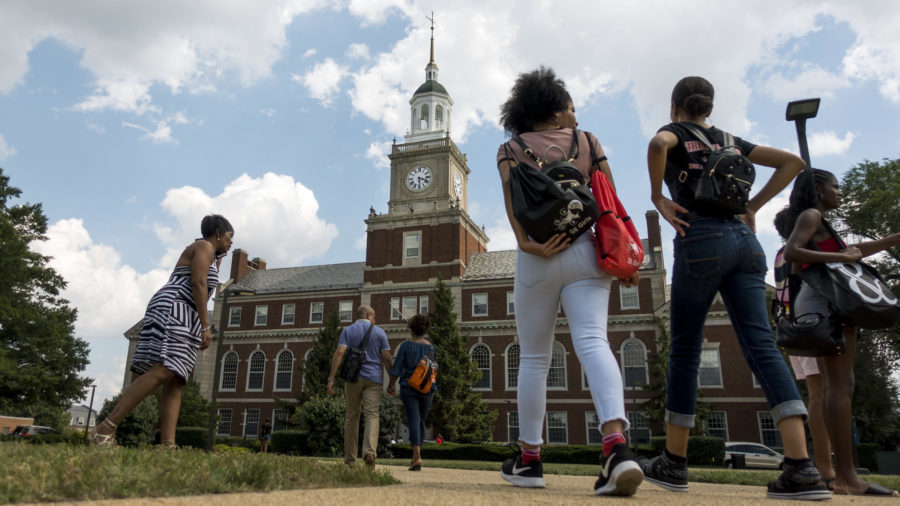
Like campuses across the country, Howard University in Washington, D.C., shut down last March when COVID-19 hit. Most of its nearly 6,000 undergraduate students have been remote learning ever since.
Without access to the physical library, demand for e-books has increased. The university recently joined the Open Libraries program to expand the digital materials that students can borrow. Through the program, users can check out a digital version of a book the library owns using controlled digital lending (CDL).
Amy Phillips, head of technical services for Howard University Libraries, learned about the opportunity last fall through the Washington Research Library Consortium. Howard is one of nine D.C.-area libraries in the nonprofit consortium, which recently collaborated with the Internet Archive to do an overlap analysis of its shared collection. When the digital materials became available to use for free through the consortia, Howard decided to join, too.
After Alisha Strother, metadata librarian, ran an analysis of books in the Howard collection by International Standard Book Number (ISBN), it was discovered that more than 14,000 books matched a copy that the Internet Archive had acquired and digitized. Howard decided to join the Open Libraries program in January. This means that students can now check out these Howard books from across the country as they engage in online instruction.
“I see this as being an important resource for students to be able to access materials from anywhere,” Phillips said. “And I think it will have value and be heavily utilized even when we are back on campus.”
Howard is one of nearly 100 historically black colleges and universities (HBCU) in the United States. One of Howard’s most important entities is the Moorland-Spingarn Research Center, which is recognized as one of the world’s largest and most comprehensive repositories for the documentation of the history and cultural of people of African descent in Africa, the Americas and other parts of the world. Portions of its materials are also now available for digital borrowing through the Open Libraries program. The collection will now have greater exposure since it had previously only been accessible onsite for researchers who scheduled appointments.
“This opens up a premier collection to public usage. From a scholarly and cultural point of view, this material is very much in demand,” Phillips said. “Looking forward, we think it will get a lot of traffic.”
COVID-19 has disproportionately affected people of color, prompting Howard to be cautious and extending online learning into the spring semester for most all students, Phillips said. The university is doing all it can to connect students with resources and its libraries have been investing more in digital items. But budgets are limited and licensing agreements curb the library’s ability to broadly lend e-books.
“The Internet Archive has been an important way to open up more library materials to students,” said Phillips, adding that it’s new and just beginning to be promoted to students and faculty. “We’re excited and we know this will have a positive impact on student success and scholarship.”

Am very pleased to hear that the Moorland-Spingarn African Collection has not been overlooked. Back in the ’80s I thought it prudent to donate parts of my African Collection to Moorland-Spingarn. Now I see that it will be of even more widespread use by African Studies scholars. Thanks to the Internet Archive.
Warm regards,
Igor G. Kozak
Howard ’67 MA African Studies